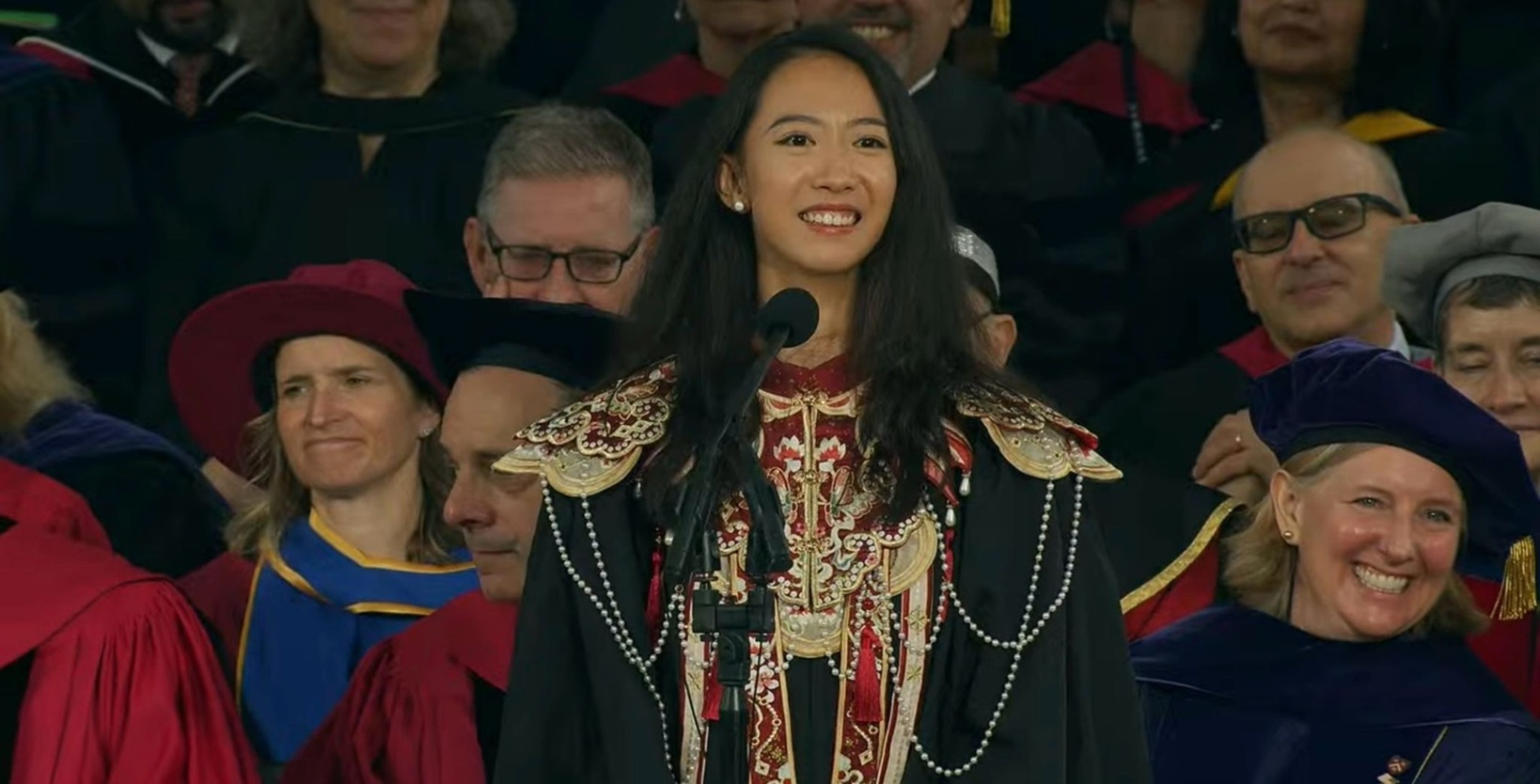
“Luanna” Jiang delivered a powerful 6½-minute commencement speech titled “Our Humanity” at Harvard University’s 374th graduation ceremony on May 29, 2025. Watch the full speech here
The Speech
The central message of Jiang’s speech is shared humanity transcends all divisions. Her core argument is that despite political, cultural, religious, or national differences, we are all fundamentally human beings connected by common experiences, struggles, and dreams.
The speech’s backbone is built on this progression:
- Personal anecdote → Global vision → Current reality of division → Call to remember our humanity
Most Important Takeaways
1. The Fundamental Message: “They Too Are Human”
The speech’s pivotal moment comes when Jiang says: “If we still believe in a shared future, let us not forget those who were labeled as enemies. They too are human. In seeing their humanity, we find our own.”
This is the heart of her message – even those we disagree with or who are labeled as “enemies” deserve recognition of their humanity.
2. Global Challenges Are Personal Challenges
Jiang’s most powerful section personalizes global suffering:
- “If there’s a woman anywhere who cannot afford a period pad, it makes me poor”
- “If a girl skips school out of fear of harassment, that threatens my dignity”
- “If a little boy dies in a war he didn’t start, part of me dies with him”
This reframes global issues as interconnected personal responsibilities.
3. Unity Through Diversity, Not Despite It
Rather than seeing diversity as a challenge to overcome, Jiang presents it as essential for understanding and solving world problems. She defended that without international students, Harvard couldn’t achieve its mission, noting “You can’t change the world without understanding the world”.
4. Resilience in Hard Times
The speech emphasizes learning to “sit with discomfort, listen deeply and stay soft in hard times” – suggesting that engaging with difficult differences makes us stronger, not weaker.
5. Practical Hope Over Naive Optimism
While acknowledging that “the world feels stuck in spinning ghost mode” (division and confusion), she doesn’t offer false optimism but practical hope: carry the connections you’ve made and remember our shared bonds.
Why This Matters Now
Given the timing during Trump administration restrictions on international students and the broader political climate of division, Jiang’s speech serves as both a defense of international education and a broader call for maintaining human connection across political divides.
The ultimate takeaway: In an era of increasing polarization and nationalism, the speech argues that our strength comes not from building walls but from building bridges – recognizing that our humanity is what binds us together, regardless of our differences.


